Story
Convene Coordinate Collaborate
How the African American Leadership Forum is driving regional change

The African American Leadership Forum members work in the public, private and nonprofit sectors to develop a common agenda that creates a more equitable, healthy and just community.
And it all began around AALF Co-Chair Gary Cunningham’s dining room table.
Cunningham, a 1991 Bush Leadership Fellow, and a group of friends including trial attorney Jeffrey Hassan and 2005 Bush Leadership Fellow Repa Mekha, organized informal meetings at Cunningham’s home in 2007.
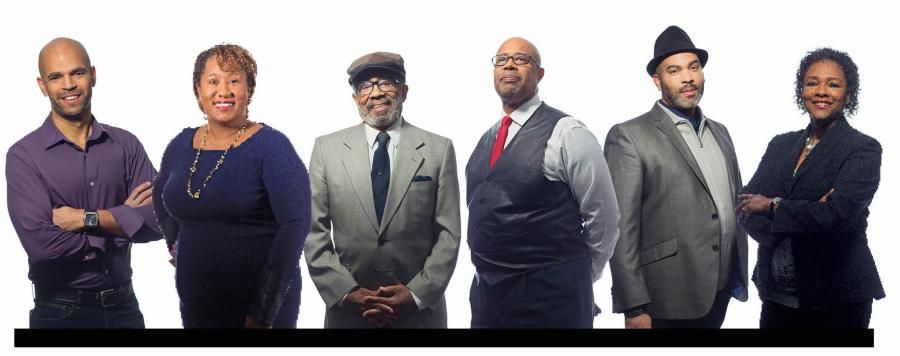
“[We] started asking the question, ‘What are we as African Americans going to do to actually address some of the deep problems within our community?’” explains Cunningham, CEO of the Metropolitan Economic Development Association, a group that offers assistance to businesses owned and managed by entrepreneurs of color.
Problems for black Minnesotans include some of the biggest educational, employment and health disparities in the nation. Efforts to address these challenges were historically driven by white-led organizations and institutions. As a result, their approaches were largely ineffective.
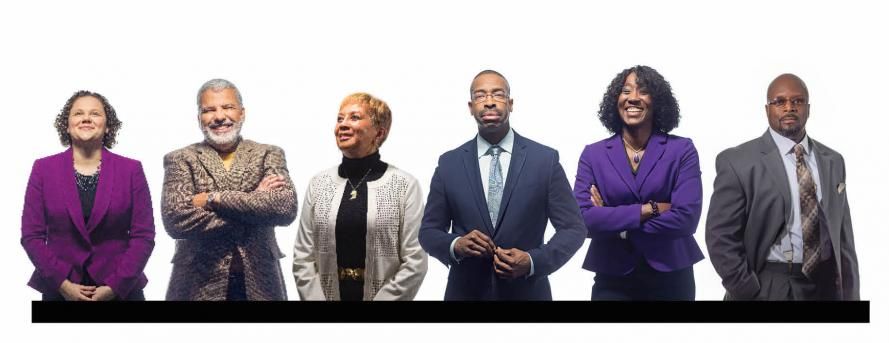
“So often others with good intentions are crafting solutions for what needs to happen, and we actually don’t have an in-common agenda within the African American community,” explains Cunningham. Before it could build a cohesive agenda, AALF needed to build connections among black leaders from all backgrounds.
“There are African Americans now in all these positions of power, but we didn’t have deeper relationships to talk about how we can be helpful to each other and to be helpful to the African American community,” says Cunningham.
Jeffrey Hassan, who grew up in Saint Paul’s Rondo neighborhood and now serves as AALF’s executive director, says the lack of relationships can be partially attributed to how scattered the black population became in the mid-20th century. As desegregation took hold in the 1960s and ’70s, the Minneapolis-Saint Paul area witnessed a mass exodus of African Americans from historically black communities — including Hassan’s own Rondo neighborhood — to suburbia. Additionally, many black families moved into neighborhoods and communities that were previously considered out of bounds. These factors diluted the chances for creating any type of cohesive community agenda.
As AALF gained momentum, its all-male membership recognized that an important voice was missing — that of black women. Cunningham hired Yvonne Cheek, president of Minneapolis-based Millennium Consulting Group, to host gatherings for black female leaders in the Twin Cities. The group then developed an agenda similar to that of Cunningham’s.
“There was this feeling amongst the group of women that there was a change happening in the United States, and that the African American community had to prepare for that change,” says AALF Founding Co-Chair Trista Harris. The year was 2008, when the United States was on the cusp of electing its first African American president.
That year, the two groups merged to become a cross-sector collective of about 45 prominent men and women. By that time, AALF had already grown out of Cunningham’s home and into the Northwest Area Foundation, where he was serving as vice president and chief program officer. At last there existed an entry point to develop a common agenda that actively addresses the range of disparities in the Twin Cities — exactly what Cunningham says had been missing in the African American community.
“We have to change the opportunity structure so that everybody, no matter their race, has access to opportunity: jobs, home ownership, health — the basic things that people need in order to feel like they can participate as full citizens in our community,” says Cunningham.
Now hundreds of members strong, AALF harnesses the collective power of the African American community to solve complex social problems. Since it began, more than a dozen Bush Fellows have played key roles in its development.
The Achievement Gap
Obtaining a quality education is one of the biggest challenges facing the African American community in Minnesota, particularly in Minneapolis and Saint Paul.
Although Minnesota’s white students possess some of the best test scores and graduation rates in the nation, its black students underperform on standardized tests, most notably in reading and math. In addition to low test scores, federal data over the course of 2012 and 2013 shows that Minnesota had the lowest graduation rate for black students in the nation at 58 percent — a trend that has held steady over the past few years.
For 2015 Bush Fellow Eric Mahmoud, north Minneapolis is ground zero for the educational challenges that face the black community. As President and CEO of the Harvest Network of Schools, as well as a member of AALF’s Education Work Group, Mahmoud is in the heart of these challenges day in and day out.
Now a collective of three public charter schools aimed at changing the educational landscape of north Minneapolis, Harvest Network has been under Mahmoud’s direction for the past 30 years. Together, Harvest Preparatory School, Best Academy and The Mastery School serve about 1,300 predominantly African American students, 93 percent of whom live in poverty.
Mahmoud believes if Harvest Network can make a difference in north Minneapolis, it can make a difference anywhere. In fact, Harvest Network students consistently exceed district and state averages in reading and math.
In 2013, the Coalition of Schools Educating Boys of Color named Best Academy one of the five best schools in America. Since 2011 the Star Tribune has annually named at least one of Mahmoud’s three schools a “Beating the Odds” school, an accolade awarded to those schools with test scores exceeding state averages despite a high student population that live in poverty.
Harvest Network schools strive to close what Mahmoud calls the Five Gaps: time, leadership, teaching, preparation and most importantly, belief. “If students don’t believe in their capacity to be successful, and, equally important, if the adults working with the students don’t believe in their capacity, it’s just not going to work at all,” Mahmoud explains. “It has to be the adults believing that regardless of zip code, regardless of economic status, regardless of where students were born or the color of their skin, they have the capacity to be successful academically.”
Hassan and the AALF Education Work Group used Mahmoud’s theory and educational model in 2011 as the outline for “Crisis in our Community: Closing the Five Education Gaps.” The report draws on research from the University of Minnesota, Wilder Research and other institutions that identify the largest chasms between white and black student success.
“A Crisis in our Community” provides recommendations for closing the academic gaps in Minnesota that contribute to some of the nation’s lowest achievement rates. The AALF Education Work Group is in the process of updating the report, compiling additional research data and evidence to identify best academic practices that are making a difference across the state.
Sylvia Bartley, current AALF co-chair and a 2014 Bush Fellow, plays a large part in this effort. Bartley has held various leadership positions on AALF’s Education Work Group and is on the Board of Directors at the Harvest Network of Schools. In 2012 she was involved in Gap Closed, an AALF-sponsored symposium for Minnesota educators. It quickly filled to capacity, forcing hopeful participants onto waiting lists — signaling a sincere desire for attacking the issue head on.
AALF’S sights are now set on closing the Minnesota achievement gap by 2020, a bold objective according to Bartley.
Building Economies That Thrive
Hassan says a primary focus for AALF this year will be on the Economic Development Work Group. It aims to address pressing issues around job creation, business and home ownership, poverty rates and more.
Between 2013 and 2014, African Americans in Minnesota experienced an alarming 14 percent decrease in median income. At barely $27,000 a year, black Minnesotans earned a median salary that was less than half of white Minnesotans — adding more urgency to the Economic Development Work Group’s agenda.
The state’s African American poverty rate jumped from 33 to 38 percent in the same timeframe, and Minnesota now has the lowest rate — 25 percent — of black home ownership in the nation. Furthermore, out of 20,000 jobs in north Minneapolis, only 1,100 are held by the community’s residents.
The disparities are so significant that Minnesota ranks 51st in the nation for overall financial equality between minorities and whites — dead last after every state and the District of Columbia.
In Hennepin and Ramsey counties, which include Minneapolis and Saint Paul respectively, African Americans account for 12 percent of the population. That number, however, is not reflected in the job market nor in philanthropic giving.
Hassan explains that in 2016 the forum will actively engage leaders in the public, private and philanthropic sectors in conversations that will shed light on African Americans’ underrepresentation, prioritizing the issue across all segments of the state’s economy.
Rena Moran, Minnesota House Representative and a 2013 Bush Fellow, brings an elected official’s perspective to AALF’s Board of Directors. As the only African American legislator in a body of 134, Moran recognizes the significance of her role.
“Everything is political,” she says. “We need to have a position that comes from the community about what is needed for black families. It’s that much more important for me to be attached to a community where I can bring that perspective to the House and introduce other legislators to them; that really helps expand the body’s knowledge and relationships.”
In September 2015, Moran and 13 AALF members met with the Congressional Black Caucus in Washington, D.C., networking with state representatives and furthering their initiative called Crafting a United Urban Agenda. That agenda, established at AALF’s February 2015 annual forum, encompasses all of AALF’s priorities within their various work groups. Crafting a United Urban Agenda is the ongoing big-picture view that intersects each sector with all the issues AALF hopes to conquer.
The Health and Wellness Quest
Over the next few years, AALF and its Health and Wellness Work Group will work to address physical and mental health issues in the black community. Rates of obesity, diabetes, cancer, mortality and hypertension are much higher for African Americans, often attributed to a lack of access to health education and other resources.
AALF intends to promote healthy lifestyle choices and preventive health care measures through signature events such as Baraza: A Black Woman’s Gathering, which started in 2012. The annual conference has seen enormous growth, notes Bartley. “Black women experience the worst health disparities of all, from hypertension to obesity and more,” she explains. Hundreds of black women have experienced Baraza each year, attending workshops that focus on topics from healthier cooking techniques to exploring spirituality.
“A lot of times the African American Leadership Forum has been identified with and largely deals with professional people,” explains Executive Director Hassan. “In the case of Baraza, it crossed the economic spectrum, which is what we’re trying to do.”
In addition to events like Baraza, AALF plans to organize community surveys about culturally sensitive, trauma-informed mental health care and menthol tobacco prevention. Members of the Health and Wellness Work Group believe that healthy communities mean thriving communities. And that, according to Hassan, begins with educating people and providing them with the proper resources.
AALF’s mission has inspired other minority communities in the Twin Cities to launch their own leadership groups, and has also spread to African American communities in the Pacific Northwest and Iowa.
“We all, regardless of our race, want to see our kids do well,” explains Cunningham. “We want to have a society that works well for everyone equally, and we want to have better outcomes to create a sustainable future for ourselves and our future generations.”
AALF now serves as a central place that allows both native-born black Minnesotans as well as transplants to tap into a vital network. Tawanna Black, a 2014 Bush Fellow studying transformational leadership and pathways to civic engagement, is newer to the Twin Cities.
Black relocated to the Twin Cities in 2013 when she accepted the role of executive director of the Northside Funders Group, a collective of foundations tasked with improving the quality of life in north Minneapolis — a primarily black community that faces some of the state’s lowest academic achievement rates and most distressing workforce numbers. Black explains that there are many African Americans, including those living and working outside north Minneapolis, who have major potential to reverse such inequities.
“There are folks who sit in very influential leadership positions within companies, who may run their own businesses, who are influential in community-based and government organizations, [whose] talent and certainly their philanthropy is not fully deployed in our community,” explains Black, who represents Minnesota Blacks in Philanthropy on AALF’s Board of Directors.
AALF’s work to connect and channel the collective influence of Minnesota’s black community will have a far reaching impact on the region.
“It’s not about any one of us individually, but what we can do together,” says Black. “One plus one plus one doesn’t have to equal three. It could equal 10 if we fully leverage all of our assets.”
My Fellowship Experience
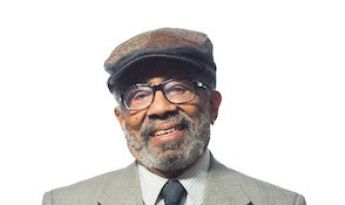
T. Williams
From running the Phyllis Wheatley Community Center to serving as Minnesota’s first Ombudsman of Corrections, this 1970 Bush Fellow has worked to reverse inequality for decades. He sat on the Minneapolis school board for four years and is a current member of AALF’s Education Work Group. His Bush Fellowship allowed him to study governmental operations and demographics, particularly in cities that, for the first time, were electing black mayors in the mid-20th century.
“One of the things that Bush Foundation gave me, it provided an opportunity for me to look at what my individual resources were and how they fit. My approach above anything I’ve done throughout my life was not to think that I had the solutions to any problem, but that what I brought to it was a particular perspective, and when you put that together with other perspectives, you could get a much broader view of what the situation might be.”
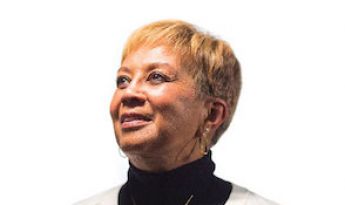
Mary K. Boyd
This 1986 Bush Fellow became a well-known figure in the Saint Paul education system. She began her career as a teacher’s aide and ended her career as an area superintendent, a path largely shaped by her Fellowship.
“The Bush Foundation gave me the opportunity and support in exploring, and then helped me to define and to build my plan and contacts — everybody should be exposed to that. It’s an internship in life.”
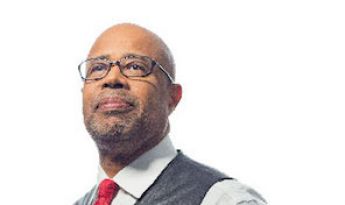
Gary Cunningham
The AALF co-founder and 1991 Bush Fellow aimed to learn advanced management techniques in order to shape public policy directions by earning a master’s degree at Harvard. But what came with the Bush Fellowship was much more — it was pivotal in shaping the rest of his life. Previously vice president of Northside Area Foundation, he is now CEO of the Metropolitan Economic Development Association.
“The doors that opened to me and the new world — the vista — that got opened to me was profound. That led me to all the adventures that I’ve had since.”
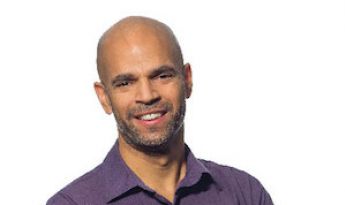
Daniel Bergin
Now a senior producer at Twin Cities Public Television, this 2001 Bush Fellow used his fellowship to propagate a love for storytelling, particularly surrounding the black community. He connected with artists around the country who were completing similar projects from New Orleans to Harlem. One of his works includes “Transformational Leadership: Black ‘Brain Drain’ is Reversed,” a documentary about AALF. Although less involved in recent years, Bergin was active early on in the Education Work Group.
“Being an alum of the Bush Leadership Fellows continues to be important to me and something that I’m proud of, but it also is a really useful tool in terms of connecting, staying in touch, staying in the mix with the broader Bush Fellowship community.”
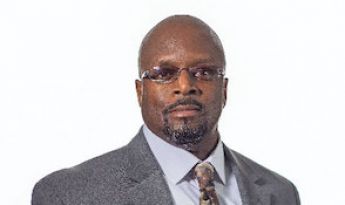
Repa Mekha
A founding member of AALF, this 2005 Bush Fellow focused on three areas during his fellowship: earning a Harvard Master’s in Public Administration, assessing the intersection of community development and community engagement, and finding a model of economic development based on culture and not solely on race. The latter endeavor took him to parts of Africa where he met with community leaders to discover what they did prior to bylaws and policies when issues arose. He is currently president and CEO of Nexus Community Partners.
“I had all these ideas in my head, and the Fellowship allowed me to crystallize them, go away, prepare myself for them, then come back and apply them with greater clarity, focus and vision.”
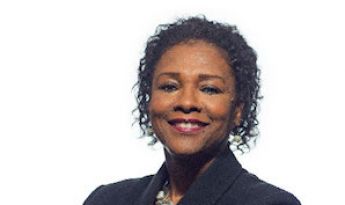
Rena Moran
Her 2013 Bush Fellowship allowed her to assess parental involvement in children’s education. She believes parents should be seen as stakeholders in schools, so she conducted a survey of nearly 200 parents and is currently analyzing the data. She serves as a Minnesota House Representative, the only black representative in a body of 134, and represents the political sector on AALF’s Board of Directors.
“The Fellowship really gave me that opportunity to slow it down some to be more intentional, to be focused more on not just tasks but relationship-building.”
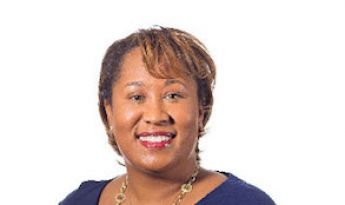
Tawanna Black
As former AALF co-chair and current executive director of Northside Funders Group, this 2014 Bush Fellow studied how to leverage black philanthropy and civil leadership in her daily work as well as in AALF. She focused on transformational leadership by attending an executive program at Georgetown University. There, she discovered that in order to be a successful leader, she must first take time for herself.
“When I think about great leaders now, I’m able to observe that great leaders have that alone time. They have time for reading and writing and reflection for self-renewal, and that is just as valuable as the time that they give their employees and their board and their communities and their stakeholders.”
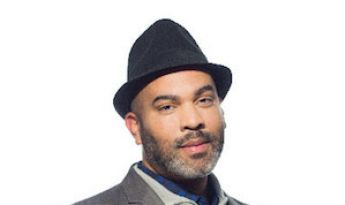
Chris Stewart
AALF’s first executive director is now director of outreach and external affairs for Education Post, a national communications organization focused on public education. The 2014 Bush Fellow was “radicalized” in his worldview, specifically in the area of education of black students. His Fellowship allowed him to strengthen his writing, speaking and communication skills to speak out against academic inequalities across the nation.
“Because of the Bush Fellowship, I had the time and the breathing room to meditate on who I am, what I am and what I want to be about … There’s a before and after to my life.”
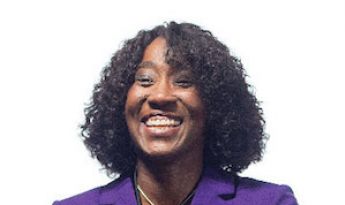
Sylvia Bartley
Education is the common thread that weaves through the life of this 2014 Bush Fellow. The AALF co-chair and Harvest Network of Schools chair recently became Global Director of Early Career Physician Development at Medtronic. Each role requires tailored leadership skills, which her fellowship helped finesse.
“It’s about the Fellowships in the networks you make, the fellowships in the people you connect with, the fellowships in the work that you’re doing; it’s more about that and having the space and guidance to do that.”
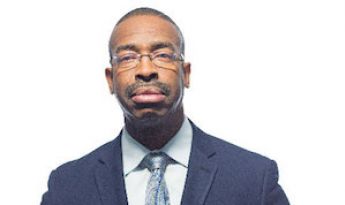
Eric Mahmoud
As the leader of Harvest Network of Schools, Mahmoud is using his 2015 Bush Fellowship to assess other leadership systems. With a goal to grow HNS from 1,300 students to 3,800 by 2025, he recognizes that his leadership skills must evolve as well.
“Though you think you carve out your own circumstances, those circumstances carve you out as well. As I work on developing this organization that’s going to be more impactful, through the Bush Foundation and through this Fellowship, it’s working on me to have a greater impact.”
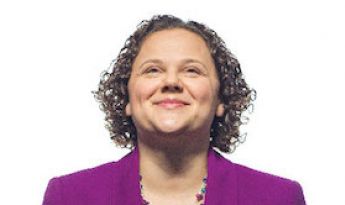
Trista Harris
A founding co-chair of AALF, this 2015 Bush Fellow is studying futurism and foresight, a tactic she believes could be of utmost utility to the social sector, particularly foundations, which comes in handy as president of the Minnesota Council on Foundations. By paying attention to trends and cues in the field, organizations can harness that information to make more strategic decisions going forward.
“It’s a fantastic opportunity to super charge your professional development. The hard part is that now I’m the problem. It used to be that money was the problem. … That is no longer an excuse. Then it becomes a matter of me prioritizing what are the things that will help me create the greatest amount of change.”
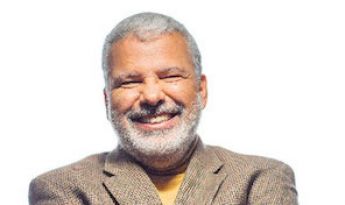
Jeffrey Hassan
As a founding member of AALF, this former defense attorney was winding down a fruitful career when the Forum began gaining serious traction. He began as Education Work Group tri-chair, working extensively on Eric Mahmoud’s “A Crisis in our Community: Closing the 5 Gaps of Academic Achievement.” In 2014 Hassan stepped in as AALF’s executive director and has seen many successes since: the forum officially became a nonprofit in 2015, the group held three leadership retreats in the same year and membership continues to grow.
AALF’S FUTURE:
Where do you see AALF five to 10 years from now?
“There’s a really important place for millennials as part of that conversation, and I hope to see the Forum continue to grow and to bring those voices into the mix because those are our leaders now, and they’re our leaders in the future.”
–Trista Harris (BF’15)
“I hope to see AALF at the tip of the spear, providing leadership both in the African American community and the broader community. Since African Americans are part of a community, if you solve the problem in one part of the community, you actually solve the problem for the community in general.”
–Eric Mahmoud (BF’15)
“AALF’s work is not about programs; it’s a movement. A reclaiming. In 10 years, I’d like to see AALF as a natural way of people operating in the community.”
–Repa Mekha (BF’05)
“Minnesota could really be a leader in the nation. I really believe it, but Minnesota has got to stop hiding from the truth.”
–Mary K. Boyd (BF’86)
“I think five years from now you’ll be able to make connections on how the Twin Cities and Minnesota African American community will be improving and the role directly or indirectly that AALF and its leaders have played.”
–Daniel Bergin (BF’01)
Disparities In Minnesota

26%
Rate of African American home ownership, the lowest in the United States

3rd
Highest achievement gap in the nation between white and black students

14%
Decline in African American median income between 2013-20143, White Median Income: $64,000, African American Median Income: $27,000

45th
Ranking for median black household income, 296.67% = Poverty gap between African American and white citizens, 51st = Ranking for financial equality between whites and minorities
Continue reading
-
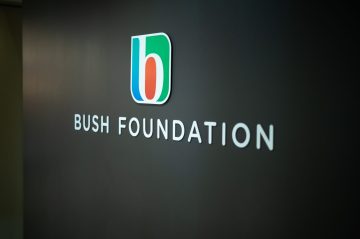
News
Opportunity to work with us
As part of our office move later this year, we are exploring possibilities for the build out of the ground floor of the building. We are in the early stages of this and considering different types of operating models and potential partnerships.
-
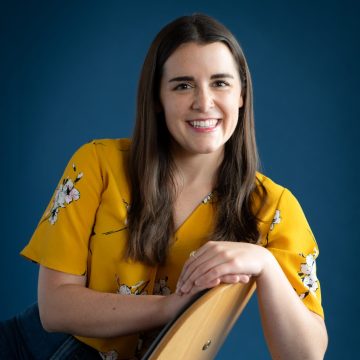
Staff note
Coordinating the work of our contact hub
We aim to be radically open in all that we do, and that includes being more accessible to more people and sharing what we learn along the way.
-
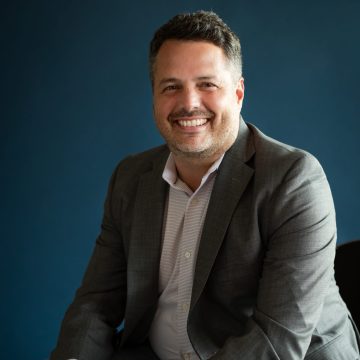
Staff note
Making every dollar work through impact investing
We have benefitted from the experience of other funders as we developed our impact investing approach. Now we are paying it forward and sharing what we have done and what we have learned.